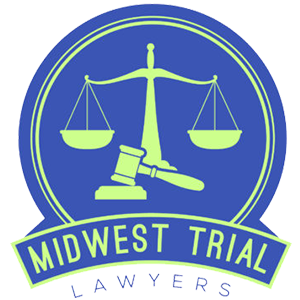After a traumatic injury, victims and their families may feel overwhelmed. The last thing they want to worry about is having to find or pay for legal representation.
While hiring an attorney may not be the first concern following an accident, it’s important that consumers speak with an experienced lawyer as soon as possible after such a life-changing event.

An attorney can help accident victims understand what legal rights they have and make the process of filing a claim or lawsuit much less stressful. By hiring a qualified attorney, you can ensure your case gets the attention it deserves and receives the compensation you deserve for your injuries and losses.
If there is one lesson we can learn from history (and old episodes of Law & Order), it is never confess to anything without your lawyer being present. So, if you’re ever in an accident, don’t speak to the other party’s insurance company until you’ve talked to your lawyer.
A Dozen Questions to Ask Before Hiring an Injury Lawyer
One of the most difficult aspects of settling an injury claim is finding the right lawyer for your case. An experienced personal injury attorney can make all the difference between receiving a fair settlement and being taken advantage of by insurance companies.
Here are some questions you need to ask before hiring an injury lawyer:
1. What are the fees involved in my case?
It is imperative that you discuss with your injury lawyer precisely how he will be compensated for his services. The most common fee structures are contingency cases, where the attorney only gets paid if you are awarded damages, or hourly rates, which can either be billed to you or paid upfront by an insurance company. If it’s a contingency case, make sure you know what percentage of the money awarded you get to keep.
2. Can I handle my claim on my own?
If you have no assets and injuries that do not require special attention (such as plastic surgery), you may not need a personal injury lawyer at all. Additionally, if your car accident was simply a fender-bender, a lawyer may not be necessary. It’s important to realize that a law degree isn’t required to represent yourself in most cases.
3. Can you help me avoid going to court?
Going through litigation is often an extremely stressful and expensive experience, so try to settle your case without filing a lawsuit if it’s at all possible. Hiring a lawyer who specializes in negotiation can often achieve favorable results for you outside of the courtroom.
4. How much experience do you have with cases similar to mine?
The truth is that even experienced attorneys lose more cases than they win, so don’t assume that the person on the other side of the table has a foolproof strategy just because he has a track record to show for it. Instead, make sure you reserve judgment until you have a chance to review the case yourself and see if it meets your standards.
5. Will I need to pay a retainer?
A retainer is essentially an upfront payment that many injury lawyers require before they will begin working on your behalf. Be careful not to agree to any terms that are more than $1,000 without first checking with an attorney who doesn’t require retainers for his services.
6. What kind of information do you need from me?
The best way to ensure that your case is handled quickly and efficiently is by providing all of the documentation needed by your lawyer as soon as possible.
7. What do you envision as a solution?
All too often, clients focus only on the money they’ll hopefully get at the end of a case and forget to consider all of the other options that could result in a positive outcome. Be sure to know what your lawyer is willing to settle for and how he plans on getting it.
8. Do I need expert witnesses?
Depending upon the specifics of your injury claim, testimony from an accident reconstruction expert may help prove liability or mitigate damages. It’s important to remember that you will likely have to pay experts with money from your settlement, so keep that in mind when you’re considering whether or not to bring them on board.
9. How do you propose we proceed?
This is the part where your lawyer tells you what he’ll be doing for you, which can include litigation, negotiation of a settlement, or both. The truth is that there is no one-size-fits-all strategy when it comes to personal injury cases, and it’s important to realize that every case has its own set of variables.
10. Is this a good time to hire an attorney?
The best time to hire a lawyer is often right after the accident when injuries are still fresh in your mind and memories haven’t started fading away. However, even if you’ve waited a while to contact an attorney, don’t hesitate to do so if you think you have a case.
11. Do you have any questions for me?
This is your opportunity to ask your lawyer any questions that you may have about the process or his experience with cases like yours. It’s also a good time to get clarification on any points that are still unclear.
12. What are the chances of winning my case?
Winning any personal injury case is never a guarantee, so it’s important not to get your hopes up too high. However, working with an experienced lawyer who knows the ins and outs of the legal system can often increase your chances of success.
Conclusion
When you’re injured, it’s important to know your rights. You may be eligible for compensation, and an injury lawyer can help you get the money you deserve. However, not all injury lawyers are created equal.
Anyone who has been injured through the negligence of someone else will want to hire a lawyer. But shopping for an injury attorney is intimidating, especially if you have had no prior experience with personal injury law or hiring a professional service provider.
Before answering that phone call from the lawyer, it’s best to arm yourself with information and know what questions need to be asked before committing to working with them on your case.
See Midwest Trial Lawyers for more.
